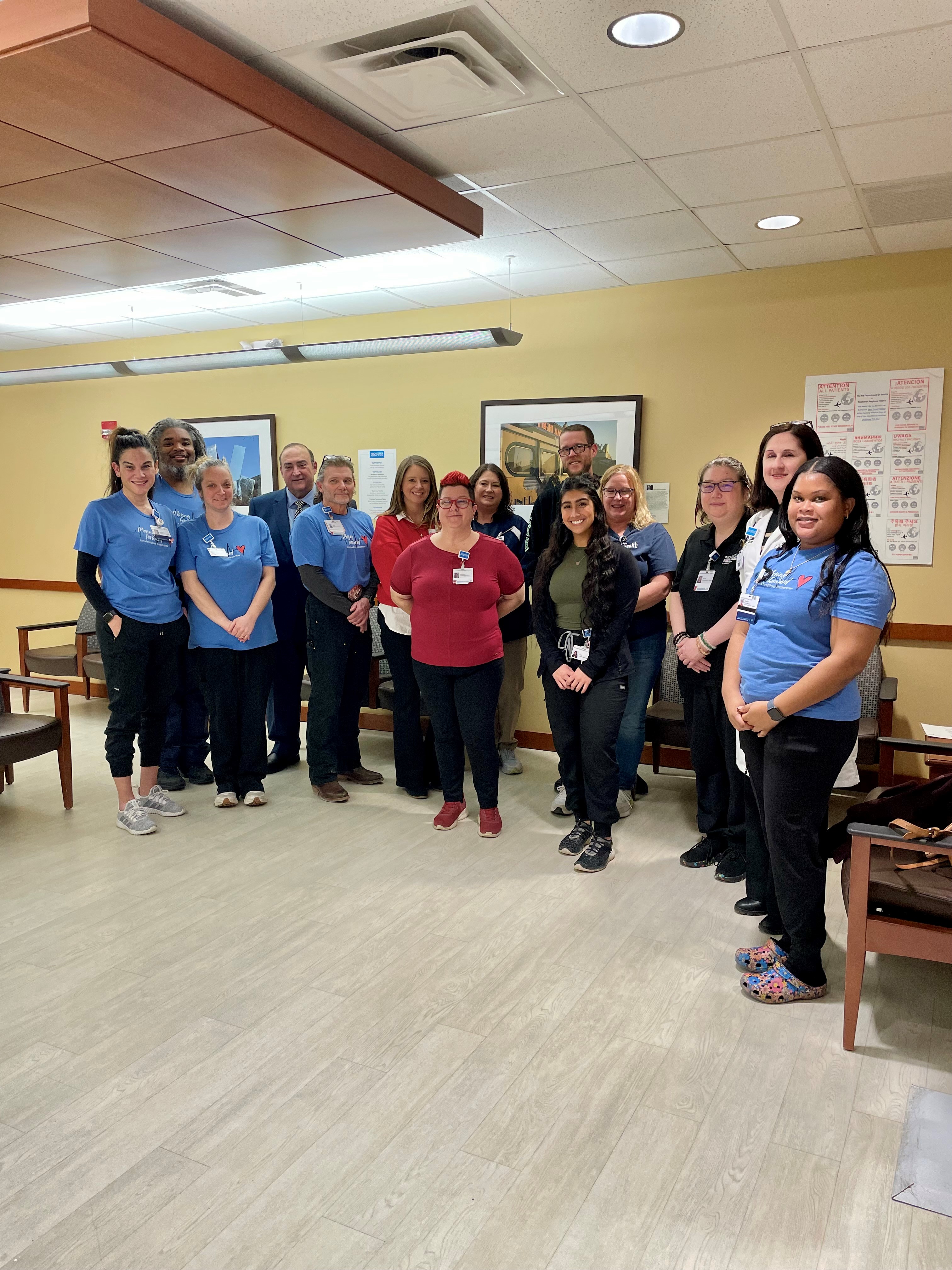Rochester Regional Health Cardiac Screenings
Rochester Regional Health hosted cardiac screenings Saturday morning at Rochester General Hospital and more than a dozen New York State troopers participated. The troopers underwent bloodwork, consultations with RRH cardiologists to assess and reduce their cardiovascular risks and on and off the job, and Cardiac Calcium Scans (CSC).
The event marks the continuation of a longstanding partnership between RRH and the Troopers PBA Surgeons Group. This partnership will expand and include additional screenings for colon and prostate cancer, as well as testosterone level assessments. Those at RRH say this will offer a more comprehensive approach to preventive care for law enforcement officers.
“At Rochester Regional Health, we are committed to helping keep our communities healthy—including those who serve and protect us,” Maurice Varon, MD, Director of Outpatient Cardiology at Sands Constellation Heart Institute (SCHI), said. “One key aspect of the Lifesaving Heart Health Screening Initiative is providing comprehensive screenings and evaluations with cardiologists who specialize in assessing risk factors and developing personalized prevention strategies. By identifying potential health concerns early, we can help officers take proactive steps toward heart health and long-term well-being.”
Studies have shown that the life expectancy of law enforcement officers is almost 22 years lower than that of the average American. One of the biggest threats those in the line of duty face is cardiovascular disease. Experts have found police officers are more likely to die of a heart attack than to be killed by a suspect.
“As New York State Troopers, we make it our mission to put others first. But to protect and serve all New Yorkers, we must protect our own health,” Charles W. Murphy, President of the New York State Troopers Police Benevolent Association, said. “The partnership between the PBA Surgeons Group and Rochester Regional Health is about ensuring our members can access quality care that helps keep them on the road in peak condition. Our message is simple: Our Troopers — and the general public — should seek out preventative care to address potential health problems before they turn serious.”
Troopers who got screened receive a comprehensive consultation and report detailing their cardiovascular risk factors. According to officials with RRH, the key component of the screening is the Cardiac Calcium Scan (CAC), which measures the amount of calcium buildup in the arteries. This calcium score helps predict an individual’s risk for future heart attacks.
The screening results are shared with each law enforcement officer’s primary care physician to continue any follow-up care.
